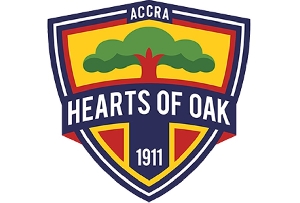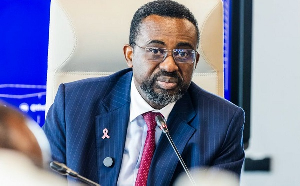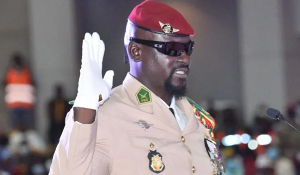Koforidua, Aug 3, GNA - Deep divisions remain among registered political parties in the country over the issue of introducing partisan politics into the workings of the district assemblies.
A one-day symposium organized for party representatives by the Institute of Economic Affairs (IEA) at Koforidua on Saturday, failed to resolve the differences between the eight registered parties over the necessity of introducing active partisan politicking into the mode of selecting district assembly members and the district chief executives. While the New Patriotic Party (NPP) seems favourably disposed to the idea together with the People's National Convention (PNC) and the National Reform Party (NRP), the National Democratic Congress (NDC) maintained its position that such a move was not presently feasible nor necessary.
The Convention People's Party (CPP) on the other hand, offered what could be described as a hybrid compromise premised on the fact that although the reforms were necessary, the nation must hasten slowly in their implementation.
The CPP tabled a proposal that will enable two representatives from each registered political party to be nominated to serve on the assemblies in the interim, while the reforms proceed. Mr Isaac Asiamah, NPP Youth Secretary and Member of Parliament for Atwima Kwawuma, outlining the party's position on the issue, said it was fraudulent and incongruous for people to assume that no politics goes on in the workings of the local authorities.
He therefore, called for a fusion of politics at both the national and grassroots, noting that, such a move will hasten efforts aimed at promoting social justice, stimulate economic initiatives and thereby help reduce poverty.
Collaborating NPP's position was Mr Bernard Mornah, Youth Organizer of the PNC, who called for amendments to the constitution to enable the assemblies and their chief executives elected along partisan lines. The PNC also proposed the establishment of a Democratic Governance Fund, which could be used to support political parties to contest local government elections.
Mr Mornah claimed that introducing partisan politics at the grassroots could encourage a more critical and quality debate in the assemblies, which eventually will usher in the ideals of probity, accountability and greater transparency at the grassroots. Leading a treatise of the NDC's alternate view, the party's Deputy General-Secretary, Mr Baba Jamal, said the district assembly concept, as being operated currently was working well and need not to be saddled with new concepts in view of the likely financial burdens these changes were likely to wrought on the assemblies.
Mr Jamal said, though the NDC does not discount likely modifications to the present structure in the future, the local administration system, as it stands currently was serving the nation well and there was no need tinkering with it. Besides, there was already sufficient fusion of politics in the assemblies and in the mode of the president's appointment of chief executives of the assemblies and the 30 per cent of all the members of the assemblies, he asserted.
Mr Jamal said among the other concerns the NDC have against the move, was the likelihood of power struggle that will ensue between a president from one party, who sees his development agenda being torpedoed by a chief executive hailing from an opposing camp. Chief Devine Ankutse of the EGLE Party, supported Mr Jamal's claims, explaining that a DCE from an opposing political party could resort to tactics, such as propaganda, sabotage and intimidations that could wreck havoc on governance at the national level.
Professor Nii Noi Dowuona, General Secretary of the CPP said the assemblies were already facing lots of financial difficulties, which have stifled their ability to deliver on their mandate, adding that, rather than seeking to add new initiatives, which ultimately would be necessary, weakness in the present structure should rather be resolved.
Politics of Wednesday, 3 August 2005
Source: GNA












